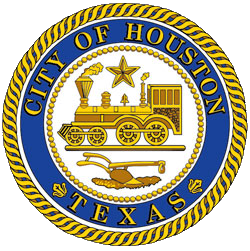Houston City Council unanimously voted on Wednesday to add electronic smoking devices to the city’s existing smoking ordinance, originally approved in 2007.
The addition to the ordinance takes effect immediately. The Houston Health Department’s Environmental Health Division will continue to enforce the ordinance.
Electronic smoking devices vary widely, but generally contain a heating element, battery or electronic circuit that heats a liquid to produce an aerosol and deliver nicotine or any other substance inhaled by users.
The devices, commonly referred to as “vapes,” are marketed or sold as an electronic cigarette, an electronic cigar, an electronic cigarillo, an electronic pipe or an electronic hookah.
According to the U.S. Centers for Disease Control and Prevention (CDC), most e-cigarettes contain nicotine, a known neurotoxin considered one of the most highly addictive substances available for public consumption.
Some e-cigarettes marketed as containing zero percent nicotine have been found to contain nicotine. They can also contain harmful substances including heavy metals such as lead, tin or nickel, ultrafine particles, flavorings with chemicals linked to lung disease, cancer-causing chemicals, and volatile organic compounds.
In 2020, about 2,807 people were hospitalized for e-cigarette, or vaping product use-associated lung injuries (EVALI) and some deaths were also reported.
Studies show secondhand smoke is also considered as dangerous as smoking itself. While users inhale e-cigarette aerosol into their lungs, bystanders can also breathe in this aerosol when the user exhales it into the air.
The Food and Drug Administration recently raised concerns over the epidemic levels of e-cigarettes use among students in middle and high schools in the past few years.
The percentage of HISD high school students who reported using e-cigarettes at least once in the previous 30 days dropped from 20.4 percent in 2015 to 6.6 percent in 2017 and then bounced back to 11.1 percent in 2019, the most recent year available. Among HISD middle school students the percentage who reported using e-cigarettes at least once in the previous 30 days dropped from 14.9 percent in 2015 to 7 percent in 2017 and increased to 9.7 percent in 2019.
Smoking is prohibited in enclosed public places like restaurants, bars, and buildings. Citations issued to business owners by health inspectors could carry a $250 to $2,000 fine, imposed by municipal courts.
Anyone with complaints should call Houston 3-1-1 and urged not to call 9-1-1 to report indoor smokers. For more information go to the City of Houston Smoking Ordinance Frequently Asked Questions (FAQ).
